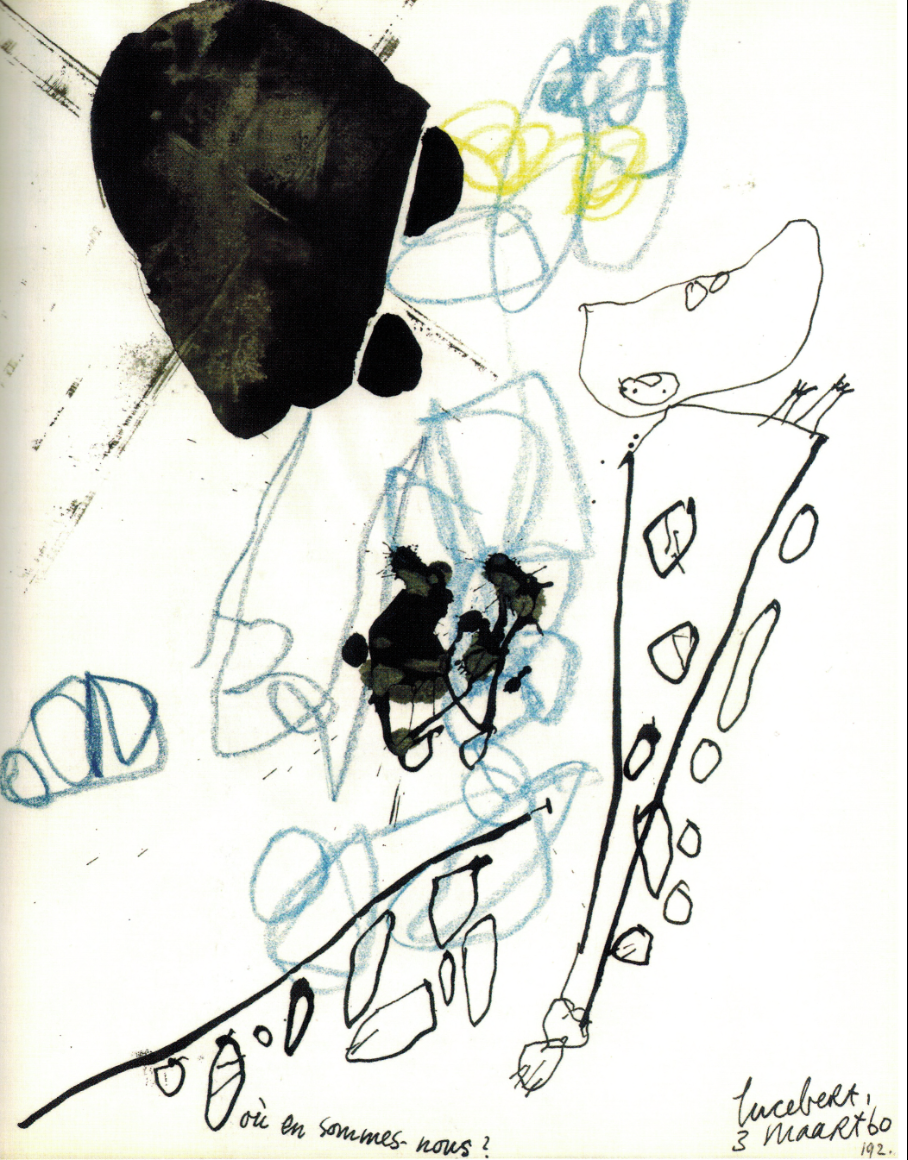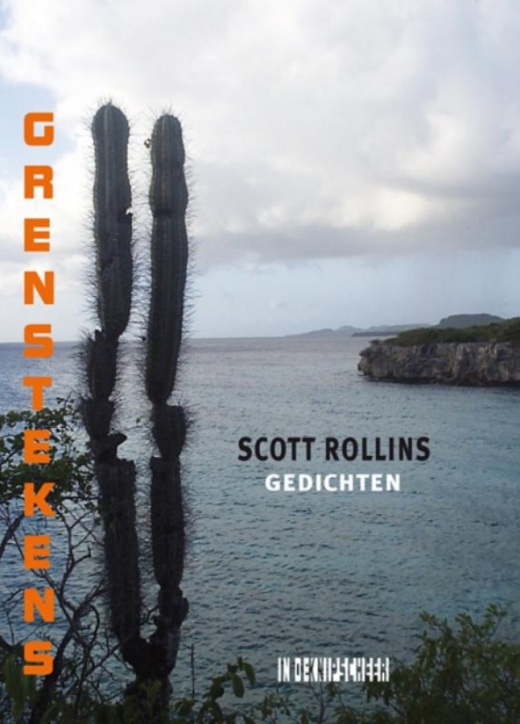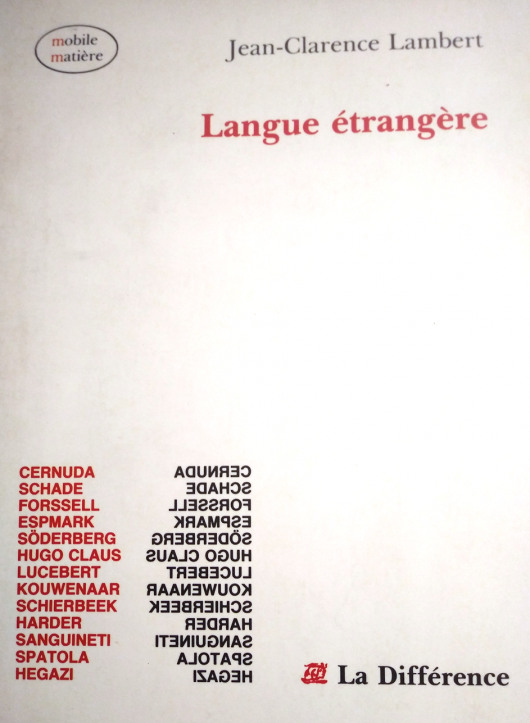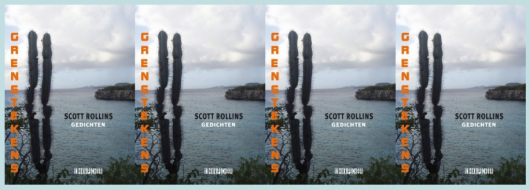Le typhon Rob Verschuren
La rubrique « Coup de cœur » vise à en mettre en avant des livres ou des écrivains oubliés ou qui ne jouissent pas de l’attention d’un très large public. Les évoquer, ce sera l’occasion, dans certains cas, de s’arrêter sur le travail de leurs éditeurs.
Pour commencer, Rob Verschuren : un talent néerlandais qui stupéfie par un imaginaire hors pair glissé dans une prose parfois onirique. On pourrait la rapprocher de celle qui illumine certaines pages du Royaume interdit de J. Slauerhoff.
Au bord d’un canal d’Haarlem, les éditions In de Knipscheer font un travail magnifique. Knipscheer, c’est le patronyme de deux frères, Jos (1945-1997) et Frank. En compagnie de son épouse, ce dernier est actuellement aux commandes de cette entreprise indépendante. Nombre d’écrivains d’expression néerlandaise ont fait leurs débuts au sein de cette maison avant de déménager chez des éditeurs de la capitale Amsterdam.
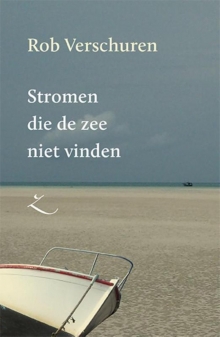 Depuis 1976, In de Knipscheer s’emploie à faire vivre les textes d’auteurs ayant des liens avec les anciennes Indes orientales et l’Indonésie, les Antilles néerlandaises ou encore le Surinam. Le fonds comprend aussi des dizaines d’œuvres d’Indonésiens, de Noirs américains, d’Africains, de Sud-Américains et de Caraïbéens. Mais les portes sont également ouvertes à des poètes et romanciers d’autres horizons.
Depuis 1976, In de Knipscheer s’emploie à faire vivre les textes d’auteurs ayant des liens avec les anciennes Indes orientales et l’Indonésie, les Antilles néerlandaises ou encore le Surinam. Le fonds comprend aussi des dizaines d’œuvres d’Indonésiens, de Noirs américains, d’Africains, de Sud-Américains et de Caraïbéens. Mais les portes sont également ouvertes à des poètes et romanciers d’autres horizons.
Ainsi, deux romans et un recueil de nouvelles de Rob Verschuren ont-ils vu le jour ces dernières années « dans le Knipscheer ». Un quatrième titre, intitulé Het witte land (Le Pays blanc) vient tout juste de paraître. Après avoir exercé maints métiers et vécu en Belgique, en France et en Inde, cet auteur s’est établi au Viêtnam, le pays de son épouse. Ses trois livres sont des merveilles de fraîcheur et de virtuosité. Par sa prose envoûtante et extrêmement colorée, Typhon emporte le lecteur sur son passage.
Quant à Stromen die de zee niet vinden (Des cours d’eau qui ne rencontrent jamais la mer, 2016, 174 pages), la critique a parlé d’un « délice sensuel » tout en soulignant une tonalité singulière. Les personnages des onze nouvelles sont à la recherche de quelque chose, sans savoir toujours de quoi au juste. Banals ou exotiques, ils prennent vie très naturellement sous nos yeux en l’espace de seulement quelques pages. Les désirs, la sagesse ou la folie qui les habitent nous touchent. Par exemple l’aveugle qui est convaincu d’être marié à la plus belle femme du monde ou la fille qui ne peut s’empêcher de mordre quelqu’un dès lors qu’elle se sent heureuse. « Ne pas trouver ce que l’on cherche, tel est le thème récurrent, nous dit un critique. Dans ces nouvelles d’une teneur universelle, on voyage à travers le monde, mais aussi dans le domaine de l’esprit. Chacune présente différents niveaux de lecture et sonde la vie quotidienne de gens ordinaires au Viêtnam, en Inde, aux Pays-Bas ou encore en France… Je n’ai pu résister au désir d’en lire des passages à voix haute rien que pour savourer le rythme de la langue. »
 En 2019 a paru Het karaokemeisje (La Fille karaoké, 190 pages). Dans une bicoque d’une station balnéaire viêtnamienne, la famille Le garde la tête hors de l’eau grâce à toutes sortes d’escroqueries dont les touristes étrangers sont les principales cibles. Ainsi que l’affirme Duc, le père : « L’avenir réside dans la coopération internationale. » Phoenix, l’héroïne de ce roman picaresque est une barmaid à la vie sentimentale un peu compliquée. Elle ne fréquente des hommes que lorsqu’elle a besoin d’argent. En matière de projets vils, son frère jumeau Tommy place la barre encore plus haut en se livrant à des arnaques sur Internet pour vider le portefeuille d’âmes sensibles occidentales. Quant à leur mère, elle tient un étal de fruits et légumes « biologiques » qui proviennent en réalité des rebuts du marché. N’oublions pas le grand-père qui n’a plus prononcé le moindre mot depuis la mort de son épouse ; de surcroît, son corps est resté figé dans la posture qu’il avait dû adopter pour effectuer un long voyage à l’arrière d’une moto. Bref, une famille de criminels enchanteresse portée par une plume subtile pleine de panache et d’humour.
En 2019 a paru Het karaokemeisje (La Fille karaoké, 190 pages). Dans une bicoque d’une station balnéaire viêtnamienne, la famille Le garde la tête hors de l’eau grâce à toutes sortes d’escroqueries dont les touristes étrangers sont les principales cibles. Ainsi que l’affirme Duc, le père : « L’avenir réside dans la coopération internationale. » Phoenix, l’héroïne de ce roman picaresque est une barmaid à la vie sentimentale un peu compliquée. Elle ne fréquente des hommes que lorsqu’elle a besoin d’argent. En matière de projets vils, son frère jumeau Tommy place la barre encore plus haut en se livrant à des arnaques sur Internet pour vider le portefeuille d’âmes sensibles occidentales. Quant à leur mère, elle tient un étal de fruits et légumes « biologiques » qui proviennent en réalité des rebuts du marché. N’oublions pas le grand-père qui n’a plus prononcé le moindre mot depuis la mort de son épouse ; de surcroît, son corps est resté figé dans la posture qu’il avait dû adopter pour effectuer un long voyage à l’arrière d’une moto. Bref, une famille de criminels enchanteresse portée par une plume subtile pleine de panache et d’humour.
Mais c’est le roman précédent qui va plus particulièrement retenir notre attention : Tyfoon (Typhon, 2018, 170 pages). Dans un quartier de pêcheurs, deux garçons et une fille sont assis dans une barque, sur la terre ferme. C’est leur dernière semaine d’école. Avant que les garçons ne se risquent sur la mer, la fille leur fait promettre de toujours rester unis. Mais quand la guerre civile éclate, l’un d’eux rejoint les rebelles. Des années plus tard, il revient en tant qu’officier de l’armée victorieuse et ne tarde pas à prendre la tête du Comité populaire local. Le second garçon est devenu un homme solitaire qui vit dans son univers. Cela se traduit par de fréquents allers et retours en barque entre le littoral et une île où, dans les parois élevées d’une mystérieuse grotte, il recueille au péril de sa vie son gagne-pain : des nids d’oiseaux. Les gens l’ont baptisé Duc noir. Malgré l’hostilité qui naît entre les deux hommes, les trois protagonistes restent liés par leur serment. Un jour, alors que la population se prépare à affronter un typhon, Duc noir gagne une dernière fois son île afin de régler ses comptes avec le passé.
L’action de Typhon se situe dans un pays fictif qui ressemble toutefois beaucoup au Viêtnam. À l’évocation émouvante de l’amitié entre trois jeunes personnes vient s’ajouter la chronique d’une société en mutation, au sein de laquelle les valeurs traditionnelles se doivent de changer pour le meilleur... ou pour le pire. Cees Nooteboom a exprimé son enthousiasme à la lecture de cette œuvre : « On ne trouve pas souvent des personnages aussi captivants dans les romans néerlandais… Celui-ci a une teneur féérique même si tout se déroule dans une société ‘‘nouvelle’’ qui n’a rien d’un conte de fées et si pèse sur la localité la menace d’une fin dramatique. » Mario Vargas Llosa estime que le style sert d’abord et avant tout à traduire une nécessité afin de convaincre le lecteur « que l’histoire n’aurait pu être racontée que de cette manière, avec les mots, les phrases et le rythme choisis par l’auteur. » Or tel est bien le sentiment qu’éveille en nous la prose de Rob Verschuren. (D. C.)

Le poète Scott Rollins nous présente quatre passages de Typhon
en traduction anglaise.
À commencer par le tout début du roman.
(1)
Nothing ever changed in the old fishing district. The sun burned on the corrugated iron roofs and the windows and doors stood wide open to let in the sea breezes. It perennially reeked of fish. Of fish that had gone bad, of dried fish, salted squid, and of the noxious fumes of the fish sauce factory, that on some days overpowered all the other smells. There were fishermen who claimed they could find their way home just by following the stench.
The city arose around the district, wedged between steep hills and the sea, and along the sea the land curled like a sleeping dragon. The land had slept for hundreds of years, through all global storms, but now a rebellion was brewing.
Hardly any of this had permeated the fishing district, where nothing shocking had occurred since the typhoon of 1861. Incense was burned for the ancestors on anniversaries, there were weddings and funerals, and in practically every home a photograph of the new king and his bride was pinned to the wall. The people spoke with indulgence and without envy about the excesses of their young sovereign who had his villas built in the loveliest locations throughout the land. Didn’t they have their own feasts, and didn’t their simple fare taste better to them than it would to him? The sea put food on the table each day and the alleys were crawling with children, who were the fisherman’s real riches.
Generation after generation the fishing district had grown towards the sea. Houses were now standing in the mouth of the river, on poles to which the inhabitants moored their narrow blue boats. Under the houses the water was dark and still. Children sometimes pulled boats into this mysterious world to do their things out of sight of the grown-ups.
One afternoon at the beginning of summer two young boys and a girl sat in a rocking rowboat beneath the floorboards. They were wearing school uniforms and were having a serious discussion about the future. The girl had just announced the three of them were going to get married.
The littler of the two boys frowned at her. He moved his lips as if he wanted to taste his thoughts before expressing them.
“That’s not possible,” he said. “There aren’t any women with two husbands.”
“So, I’ll be the first one,” said the girl with calm conviction.
It was the last week of school. For the first time their bond had come under threat. They were inseparable, the three children in the boat, ever since they had been able to walk. A week from now the boys would go to sea and girl to the River Market, where her mother had a stand selling fish. For the first time ever, the world was hostile.
“That’s not allowed,” said the boy. He was short and stocky. Anyone who saw him, with his bright, inquisitive eyes knew he would not become a simple fisherman. “Duc?”
The other boy shrugged his shoulders with a smile. There was a smile across his narrow face practically all the time, which took the place of words.
“Because I love you both just as much,” said the girl. “We have to always stay together. Forever and ever. Promise?”
They were twelve, all three of them. The girl was no beauty. She looked like she would become one of those strapping housewives who served as a beacon and life buoy for men with wild, misunderstood, and disastrous desires.
“Promise?”
The youngest boy raised his hand. His fingertips reached the rough boards above his head. “I solemnly promise that Mai, Duc and Vinh will always stay together.”
“Duc?”
“Promise,” said Duc. He smiled his gentle smile at Mai and Vinh. Turning around he squinted across the mouth of the river sparkling like an ocean of shards of glass, at the bay, where five dark rocky islands rose from the water…
(2)
Rob Verschuren, sa nièce, son épouse, sa belle-sœur
 She was known by countless names, but her honorary title was the same in every language and dialect: The Black Goddess. Long before Saint Peter had gotten the keys to the kingdom of heaven and Gautama the Buddha had left the shade of his banyan tree, her dominion over heaven and earth had been recognized by everyone in the land, even though different powers and deeds were attributed to her in different places. People who live on the sea need different gods than those who live in the mountains. To the Hmong she was the living earth mother, who ruled over the sky, the clouds, the wood, the trees and rice, and who had given birth to thirty-eight daughters, none of whom it is told wore clothes. For the tribes along the coast she was the goddess of the sea, who provided mankind with food and afflicted it with typhoons. She was ancient. Older than the sea, older than the love between man and woman, of whom she was also the goddess. Before the earth had taken on form, she was the sole creature in the black chaos. In her loneliness she cried salty tears, and these tears became the oceans.
She was known by countless names, but her honorary title was the same in every language and dialect: The Black Goddess. Long before Saint Peter had gotten the keys to the kingdom of heaven and Gautama the Buddha had left the shade of his banyan tree, her dominion over heaven and earth had been recognized by everyone in the land, even though different powers and deeds were attributed to her in different places. People who live on the sea need different gods than those who live in the mountains. To the Hmong she was the living earth mother, who ruled over the sky, the clouds, the wood, the trees and rice, and who had given birth to thirty-eight daughters, none of whom it is told wore clothes. For the tribes along the coast she was the goddess of the sea, who provided mankind with food and afflicted it with typhoons. She was ancient. Older than the sea, older than the love between man and woman, of whom she was also the goddess. Before the earth had taken on form, she was the sole creature in the black chaos. In her loneliness she cried salty tears, and these tears became the oceans.
Of all her mortal children, only the Hmong had remained true to her. Buddhism had come from China, from the West the hopeful message of the crucified son of God, propagated by the missionaries who followed in the wake of the colonial armies like vultures.
Worshipping her had undergone a short-lived revival in the city by the sea when famine was at its height and the threat from the North at its greatest. Now the path to her ruined sanctuary was once again choked with weeds. The war was over and there had not been a typhoon for over a century. For the time being the citizens made do with their younger gods. The odd person who still claimed that the pitch-black rocky peak sticking out of the water at some distance from the other islands, was her earthly place of residence, could count on being the butt of a good joke…
(3)
Nothing in his life had prepared him for the cave of the Black Goddess. It was not large, but exceptionally high. Just under the roof was an irregularly shaped gap maybe ten meters in diameter. The bright blue sky over his head was reflected in the tranquil water at his feet, and where sunlight hit the walls, the rock gleamed like polished steel and crystals of olivine glittered brightly and green. Pillars of basalt rose like gigantic organ pipes on all sides. He stood in the pool with his mouth open, a newly baptized convert, filled with glory and awe. This was the most beautiful sight he had ever seen. There was not a god worshipped in the entire world, who had a cathedral like that of the Black Goddess.
There were birds, less than in the other caves, as if only a tiny elite gained access to this holiest of holies. But where were the nests? That is when he saw them, drops of blood on a black skin. The red nests that were the rarest and most precious ones of all.
With a shock he realized what he was missing. There was not a piece of scaffolding in sight. He would have to build it himself, drag the poles through the narrow crevice. He laughed out loud. No, he would climb here like only he could. Without aids, man against rock. He examined the walls. They sloped towards one another, like a pyramid rising to an apex. The only wall that was more or less straight was at the back. It looked possible to do, even though the vertical layers of basalt did not make it any easier.
He splashed through the water to solid ground. The pool covered more than half the surface area of the floor, and the smell of the sea was stronger than in the other caves. A gold colored cockroach, as big as a fist, scuttled away over the carpet of bird droppings, as he set foot on dry land.
A man was lying in front of the rear wall, or what was left of him. Insects had eaten away the flesh and left behind a white skeleton in a pair of pale overalls.
Duc looked up and tried to estimate from where he had fallen. The wall gave no indication, to him it all seemed just as steep and difficult to climb.
He inspected the cracks and crevices for a while, trying to work out a route to the first nests. Then he went back through the pool. With the coil of rope from his boat he shuffled back into the cave. He tied it to the skeleton and dragged it behind him, over the layer of droppings and through the water. He tied the rope to an oarlock and rowed to the open sea. This is where he untied it. As he watched the loops vanish beneath the surface of the water like a writhing sea snake, he sought words to utter a prayer.
(4)
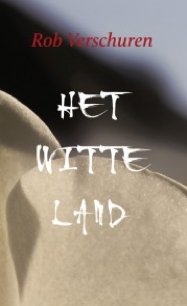 …Duc found a new love, just as passionate as his love for the birds. He was fascinated by the way little Phuong gave names to the things around her. Everybody said she was slow at learning how to talk. She kept chattering stubbornly away in her imaginary language, even though Mai did her utmost to teach her words. Duc heard something in her twittering resembling the language of the birds, which he had fruitlessly studied his entire life. He suspected that in both cases strange and important things could be learned, that would only be revealed when you stopped searching for meaning.
…Duc found a new love, just as passionate as his love for the birds. He was fascinated by the way little Phuong gave names to the things around her. Everybody said she was slow at learning how to talk. She kept chattering stubbornly away in her imaginary language, even though Mai did her utmost to teach her words. Duc heard something in her twittering resembling the language of the birds, which he had fruitlessly studied his entire life. He suspected that in both cases strange and important things could be learned, that would only be revealed when you stopped searching for meaning.
As a young man he had been convinced the birds would speak to him one day, just as they spoke to the gods. Later, he had concluded that the words used by The Buffalo, were meant symbolically. Zaj probably came closer to the truth: that birds sang to avoid collisions. This dovetailed more with the scientific position that the various sounds were social signals. A primitive form of communication with a functional purpose. But that explanation did not satisfy him. The song of hundreds of birds in the stone clock tower of the cave was too majestic, too moving. And it was never the same. Sometimes it sounded raw and chaotic and other times like a song of jubilation. Why look for a meaning?
It struck him that human words too seldom had a meaning. That most conversations were not carried out to convey anything, but as a pastime or ritual. Out of a fear of silence.
Maybe the birds sang for their pleasure, like people whistling a tune. Ram had once told him about the Hmong’s whistle language used by hunters to communicate with each other in the jungle.
“It’s our real language,” said Ram. “Older than our spoken language. Anyone mastering the whistle language can express just as much as with words. Do you know what else it is used for?” Ram grinned. “For love. The young men walk through the village in the evening whistling poems. When a girl responds from the darkness, they begin their courtship.”
He had often longed to go and visit Ram’s village and listen to the whistling of the lovers in the mysterious jungle night.
Why would the language of birds or a child not be poetry? Or have some other function, which science could not fathom? How would the world look if there was a language in which you could say exactly what you thought? Or a language with only words for beauty and joy? One question begat another. He could continue to brood about it his entire life without finding an answer. That is why he had stopped searching for meaning. In the sounds of birds and humans he listened to rhythm and harmony, like in the rolling of the surf and the beating of the rain on the corrugated iron roof.
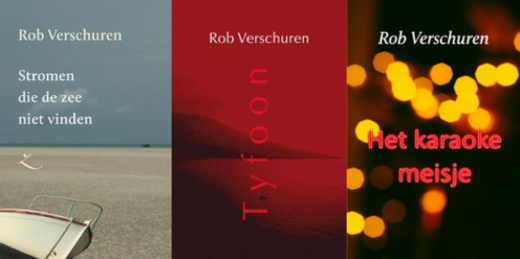
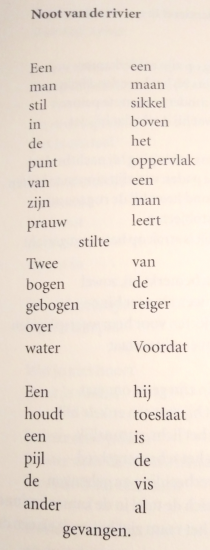 Qui est cet homme privé de main, mais qui, n’ayant pas encore perdu sa voix, articule le vent sur le littoral du pays de Galles ? De quelle forêt tropicale surgit cette pirogue, menace pour les poissons, et pourtant moins dangereuse semble-t-il que le héron puisque tout à fait urbaine sous sa forme de calligramme (« Noot van de rivier ») ? Comment le crapaud des gorges du Tarn parvient-il, sans le moindre secours des éléments ni des hommes, à échapper à l’étau des mâchoires d’un serpent ? Quelle relation entretient le corps humain avec les nuages ? Comment franchir une frontière en déménageant en soi-même ? Et quid des chemins que l’on emprunte et qui ne mènent pourtant nulle part ?
Qui est cet homme privé de main, mais qui, n’ayant pas encore perdu sa voix, articule le vent sur le littoral du pays de Galles ? De quelle forêt tropicale surgit cette pirogue, menace pour les poissons, et pourtant moins dangereuse semble-t-il que le héron puisque tout à fait urbaine sous sa forme de calligramme (« Noot van de rivier ») ? Comment le crapaud des gorges du Tarn parvient-il, sans le moindre secours des éléments ni des hommes, à échapper à l’étau des mâchoires d’un serpent ? Quelle relation entretient le corps humain avec les nuages ? Comment franchir une frontière en déménageant en soi-même ? Et quid des chemins que l’on emprunte et qui ne mènent pourtant nulle part ? La photo de couverture, prise par le poète lui-même, nous montre les deux bras dressés d’un cactus, à la frontière entre terre et mer – les îles où l’on échoue ont-elles une frontière, s’inscrivent-elle réellement dans le temps ? Tel un fanal, un signe, une trace de frontière, tel le poète, le cactus se tient là immobile, fixant, au-delà des terres et de l’océan, l’horizon avant d’ouvrir les bras sur l’imaginaire, de « saisir à pleines mains l’air », de « peindre avec les couleurs de l’eau », avant de tourner le regard sur les frontières franchies en lui-même. « Regard sur l’infini ? Quand l’œil intérieur / tout à la fois en éveil et en sommeil / sans penser ni cligner / rêve ce qu’il voit ».
La photo de couverture, prise par le poète lui-même, nous montre les deux bras dressés d’un cactus, à la frontière entre terre et mer – les îles où l’on échoue ont-elles une frontière, s’inscrivent-elle réellement dans le temps ? Tel un fanal, un signe, une trace de frontière, tel le poète, le cactus se tient là immobile, fixant, au-delà des terres et de l’océan, l’horizon avant d’ouvrir les bras sur l’imaginaire, de « saisir à pleines mains l’air », de « peindre avec les couleurs de l’eau », avant de tourner le regard sur les frontières franchies en lui-même. « Regard sur l’infini ? Quand l’œil intérieur / tout à la fois en éveil et en sommeil / sans penser ni cligner / rêve ce qu’il voit ».